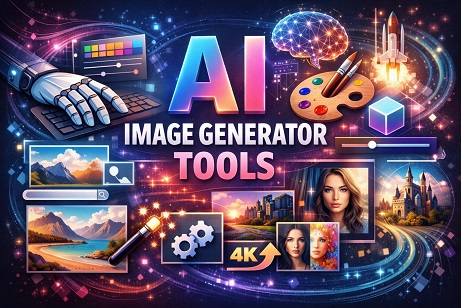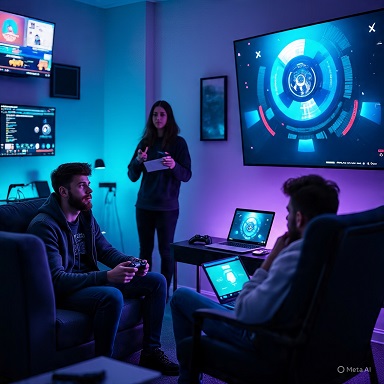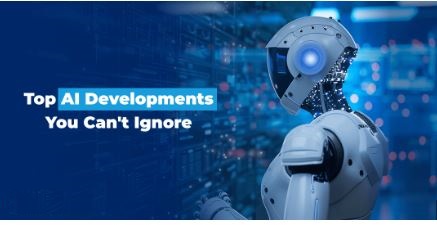Stories you may like
AI Consultant
An AI consultant provides expertise and guidance on the implementation, development, and optimization of artificial intelligence (AI) technologies and solutions for businesses, organizations, or government agencies. These consultants possess in-depth knowledge of AI algorithms, machine learning techniques, and data analytics methodologies, allowing them to assess clients' needs and objectives and recommend tailored AI strategies to achieve desired outcomes.
AI consultants help clients navigate the complexities of AI adoption, including data preparation, model training, performance evaluation, and scalability considerations. They stay abreast of emerging trends and technologies in the AI landscape, conducting research, evaluating industry best practices, and providing thought leadership to empower clients with innovative AI solutions that drive business value and competitive advantage.
What does an AI Consultant do?
Duties and Responsibilities
The duties and responsibilities of an AI consultant encompass a wide range of tasks aimed at providing comprehensive AI-related services and solutions to clients. Here are some key responsibilities:
- Assessment and Analysis: Conducting thorough assessments of clients' business processes, data infrastructure, and technological capabilities to identify opportunities for AI integration and optimization. Analyzing clients' needs, objectives, and constraints to develop tailored AI strategies that align with their goals and priorities.
- Solution Design and Development: Collaborating with clients to design, develop, and implement AI solutions that address specific business challenges or opportunities. This includes selecting appropriate AI algorithms, machine learning models, and data analytics techniques to achieve desired outcomes, as well as overseeing the development process and ensuring the quality and integrity of AI solutions.
- Data Preparation and Modeling: Assisting clients in preparing and structuring data for AI applications, including data cleaning, preprocessing, feature engineering, and dataset creation. Building and training machine learning models using relevant programming languages (such as Python or R) and frameworks (such as TensorFlow or PyTorch) to extract insights, predict outcomes, or automate decision-making processes.
- Performance Evaluation and Optimization: Evaluating the performance and effectiveness of AI models and solutions through rigorous testing, validation, and iteration. Monitoring key performance indicators (KPIs) and metrics to measure the impact of AI initiatives on business outcomes and identifying areas for improvement or optimization.
- Stakeholder Engagement and Communication: Engaging with clients, stakeholders, and cross-functional teams to communicate AI strategies, requirements, and progress updates effectively. Providing guidance, training, and support to internal teams to facilitate the adoption and integration of AI technologies within the organization.
- Ethical and Regulatory Compliance: Ensuring that AI solutions adhere to ethical principles, legal regulations, and industry standards related to data privacy, security, fairness, and transparency. Addressing ethical considerations and potential biases in AI algorithms and decision-making processes to mitigate risks and promote responsible AI deployment.
- Continuous Learning and Innovation: Staying abreast of emerging trends, technologies, and best practices in the field of AI through continuous learning, research, and professional development. Experimenting with new AI techniques, tools, and frameworks to drive innovation and deliver cutting-edge solutions that meet clients' evolving needs and expectations.
Types of AI Consultants
AI consultants specialize in various aspects of artificial intelligence (AI) implementation, development, and optimization, catering to diverse needs and industries. Here are some common types of AI consultants and their respective focuses:
- AI Change Management Consultants: Change management consultants focus on facilitating organizational change and adoption of AI technologies. They help clients assess readiness for AI implementation, identify potential barriers to adoption, and develop strategies to promote cultural transformation, employee engagement, and skills development.
- AI Data Consultants: Data consultants specialize in data management, data quality assessment, and data governance, helping organizations prepare, clean, and structure data for AI applications. They ensure that AI models have access to high-quality, relevant data and help organizations leverage their data assets to maximize the effectiveness of AI solutions.
- AI Ethical and Regulatory Consultants: These consultants focus on ensuring that AI implementations adhere to ethical principles, legal regulations, and industry standards related to data privacy, security, fairness, and transparency. They help clients navigate ethical dilemmas, mitigate risks, and establish governance frameworks for responsible AI deployment.
- AI Research and Innovation Consultants: Research and innovation consultants work on the cutting edge of AI research, exploring new algorithms, techniques, and applications to drive innovation and competitive advantage. They collaborate with clients to develop proof-of-concept projects, pilot initiatives, and experimental AI solutions that push the boundaries of what's possible with AI.
- AI Startup Consultants: Startup consultants specialize in advising AI startups on business strategy, product development, fundraising, and go-to-market strategies. They help startups navigate the challenges of scaling their AI solutions, attracting investors, and competing in the marketplace.
- AI Strategy Consultants: These consultants focus on developing high-level AI strategies and roadmaps for organizations, aligning AI initiatives with business objectives, and identifying opportunities for AI integration across departments and functions.
- AI Technical Consultants: Technical consultants possess deep expertise in AI algorithms, machine learning techniques, and data engineering, helping clients design, build, and deploy AI solutions tailored to their specific use cases and requirements.
What is the workplace of an AI Consultant like?
The workplace of an AI consultant can vary depending on the nature of their role, the organization they work for, and the specific projects they are involved in. However, there are common aspects that characterize the workplace environment for many AI consultants.
Primarily, AI consultants often spend a significant amount of time in office settings, where they collaborate with colleagues, analyze data, develop AI models, and engage with clients. In these office environments, consultants leverage advanced technology and software tools to conduct data analysis, run simulations, and build predictive models. They may work in dedicated AI labs or innovation centers within their organization, equipped with state-of-the-art computing resources and collaborative workspaces conducive to creative problem-solving and innovation.
Additionally, AI consultants frequently engage in client-facing activities, such as meetings, workshops, and presentations, which may take place both on-site at client locations and remotely via virtual meetings or conference calls. They work closely with clients to understand their business needs, gather requirements, and communicate AI solutions and recommendations effectively. This client interaction aspect of the job often involves travel to client sites, where consultants provide on-site support, conduct training sessions, and facilitate workshops to drive AI adoption and implementation.
The workplace of an AI consultant may extend beyond traditional office boundaries, involving remote work options and flexible schedules. With advancements in technology and communication tools, consultants have the flexibility to work from home or other remote locations, collaborating with colleagues and clients across different time zones and geographic locations. This flexibility enables consultants to balance their work and personal life while maintaining productivity and responsiveness to client needs.
Everyday activities of an AI consultant
Now, let’s revise the key everyday activities of an AI consultant. Most AI consultants spend their time dealing with both strategic and technical tasks. But these tasks may typically depend on the project and client.
Clients’ needs analysis. One of the central tasks of a gen AI consultant is understanding the client’s business needs and challenges. It includes regular meetings with business owners and stakeholders, analysis of clients’ business processes, and identification of aspects where AI can generate better results.
AI solutions prototyping. Most AI consultants create small prototypes for testing the feasibility of their solutions. It helps them understand which AI tools can be suitable for the business and what impact these tools can bring.
Internal teams’ training. Several AI consultants also educate business teams on how to use AI systems for business, maintain those systems etc. These trainings help ensure that employees have the skills required for utilizing AI tools.
AI models troubleshooting. There are numerous possible challenges and difficulties an artificial intelligence system may face, and the model may need some troubleshooting. The challenges may range from the low quality of data to inaccurate predictions. AI consultants should work with these problems’ solutions.
Establishing communication with stakeholders. Naturally, AI consultants spend much time communicating with business owners and stakeholders and explaining some concepts to non-tech people. They also often provide regular performance reports.
The most essential skills for AI consultants
AI consultants should possess a variety of different skills in order to bridge the gap between business and technology successfully. These skills include:
- Tech expertise. AI consultants must be proficient in a variety of technologies that are crucial for AI, including machine learning algorithms, deep learning models, NLP, and computer vision, among others. In addition to that, the consultant should have a good grasp of programming languages like Python, R, and SQL, as well as AI platforms such as TensorFlow and PyTorch.
- Business acumen. Analytics and AI consultants should know how to align AI initiatives with business needs, implying a deep understanding of business processes, strategies, and market conditions.
- Communication skills. AI professionals, including machine learning consultants, should communicate complex AI topics to their stakeholders in plain language. In addition to that, these consultants should be able to present their ideas precisely and succinctly to make sure that all their stakeholders understand the propositions and rationale behind them.
- Problem-solving ability. AI consultants are usually called in to solve complicated problems, whether it is choosing the right AI software or fixing a problem in a machine learning model.
How to become an AI Consultant
Becoming an AI consultant requires a combination of education, experience, technical skills, and interpersonal abilities. Here's a guide on how to pursue a career as an AI consultant:
- Educational Background: Obtain a bachelor's degree in a relevant field such as computer science, data science, artificial intelligence, mathematics, engineering, or a related discipline. Some employers may prefer candidates with advanced degrees, such as a master's or Ph.D., especially for roles requiring specialized expertise or research-focused positions.
- Gain Relevant Experience: Gain practical experience in artificial intelligence, machine learning, data analysis, and software development through internships, co-op programs, research projects, or industry-related work experience. Seek opportunities to work on AI projects, contribute to open-source initiatives, or participate in AI competitions and hackathons to build your portfolio and demonstrate your skills.
- Develop Technical Skills: Acquire proficiency in programming languages commonly used in AI and machine learning, such as Python, R, Java, or C++. Familiarize yourself with popular AI libraries and frameworks like TensorFlow, PyTorch, scikit-learn, or Keras. Develop expertise in data preprocessing, feature engineering, model selection, evaluation metrics, and deployment strategies for AI solutions.
- Specialize in AI Domains: Explore different domains within artificial intelligence, such as natural language processing, computer vision, reinforcement learning, or deep learning. Consider specializing in specific industries or applications where AI technologies have significant impact, such as healthcare, finance, retail, manufacturing, or autonomous systems.
- Obtain Certifications: Consider pursuing relevant certifications in artificial intelligence, machine learning, or data science to enhance your credentials and demonstrate your expertise to potential employers. Some reputable certifications include the Google Professional Data Engineer, AWS Certified Machine Learning Specialist, or Microsoft Certified: Azure AI Engineer Associate (see below).
- Gain Consulting Experience: Seek opportunities to work as a consultant or intern with consulting firms, technology companies, research organizations, or AI startups. Collaborate with clients to identify business challenges, propose AI solutions, and deliver value-added services that drive business outcomes and client satisfaction.
- Stay Updated and Adapt: Keep abreast of advancements in AI technologies, industry trends, regulatory developments, and emerging best practices through continuous learning, online courses, workshops, and professional development opportunities. Adapt to evolving market demands and client expectations to remain competitive and relevant in the field of AI consulting.
Certifications
There are several certifications in related fields that can enhance your credentials and demonstrate your expertise in artificial intelligence (AI) and related areas. Here are some relevant certifications for AI consultants:
- Google Cloud Professional Data Engineer: This certification demonstrates your ability to design and build data processing systems and machine learning models on Google Cloud Platform. It covers topics such as data engineering, machine learning, data analysis, and deployment of AI solutions.
- AWS Certified Machine Learning Specialty: Offered by Amazon Web Services (AWS), this certification validates your expertise in designing, implementing, and deploying machine learning solutions on AWS. It covers topics such as data preparation, model training, model evaluation, and deployment strategies.
- Microsoft Certified: Azure AI Engineer Associate: This certification from Microsoft validates your skills in designing and implementing AI solutions using Azure AI services. It covers topics such as natural language processing, computer vision, conversational AI, and responsible AI development.
- IBM Data Science Professional Certificate: Offered by IBM on Coursera, this certificate program provides a comprehensive introduction to data science and machine learning concepts using IBM tools and platforms. It covers topics such as data analysis, data visualization, machine learning algorithms, and model deployment.
- Certified Analytics Professional (CAP): Offered by the Analytics Certification Board (ACB), the CAP certification demonstrates your proficiency in analytics and related disciplines, including predictive modeling, machine learning, data mining, and data visualization. While not specific to AI, it provides a broad foundation in analytics principles and practices.
- SAS Certified AI & Machine Learning Professional: This certification from SAS validates your skills in using SAS software to analyze data, build machine learning models, and deploy AI solutions. It covers topics such as data manipulation, statistical analysis, predictive modeling, and deep learning.
Certified Information Systems Security Professional (CISSP): While not specific to AI, the CISSP certification from (ISC)² demonstrates your expertise in cybersecurity principles and practices, including data security, privacy, and ethical considerations. Given the importance of security in AI implementations, this certification can be valuable for AI consultants working on security-related aspects of AI projects.










User's Comments
No comments there.